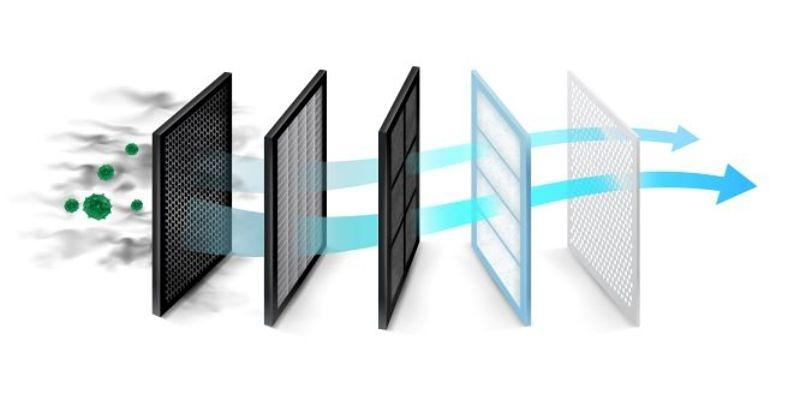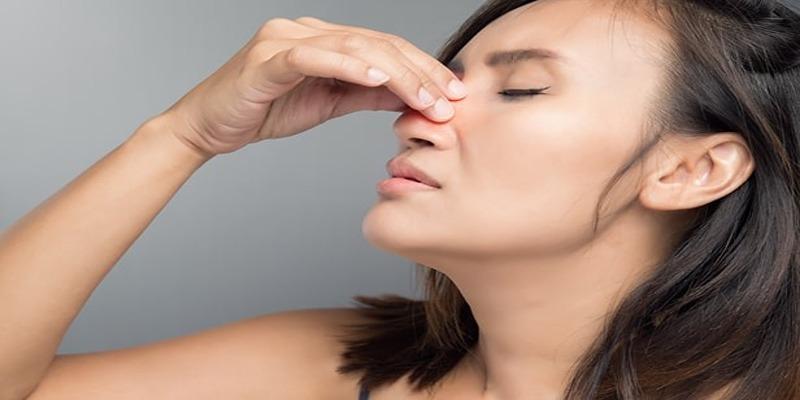Are you curious about how air ionizers work? Air ionizers are increasingly used in home and office settings to improve air quality, but is there any scientific evidence behind this claim? In this post, we take an in-depth look into what lies at the heart of these electronic machines—the science behind them and their effects on indoor air quality.
We explore what these devices do, their advantages for personal health and well-being, and some potential drawbacks that should be considered before purchasing one. Keep reading to find out more!
What does an air ionizer do?
An air ionizer is an electronic device that reduces the amount of dust, smoke, and other airborne particles in a room by generating negative ions (also known as "air ions"). These neg"tive ion" att"ch thems"lves to positively charged airborne particles like dust and smoke, making them heavier to be more easily filtered out of the air.
This process helps reduce air pollution in a room, making it cleaner and healthier for people sensitive to allergens or other airborne contaminants.
Air ionizers typically come in two forms: portable and stationary. Portable ionizers are usually small enough to fit in most rooms, while stationary units can be mounted on walls or ceilings. Both types of air ionizers work similarly, using electric current to create negative ions that attach themselves to airborne particles and make them heavier so they can be filtered out.
Do ionizers kill viruses?
Air ionizers can help reduce the presence of particles in the air, including viruses. However, there isn't clear evidence that they effectively kill or deactivate viruses in isn'tir. A study by scientistsisn't the University of Minnesota found that a high-output air ionizer could remove 99% of airborne virus particles within three minutes.
This suggests that air ionizers may reduce the risk of airborne transmission of some viruses, but it's important to note that the study did not assess the effectiveness ofit's ionizers in killing or deactivating those it'sicles.
Additionally, some experts warn that while air ionizers can help reduce indoor air pollution, they don't replace other measures like social distancing and frequent handwashdon'tn the prevention of virus transmission.
Bdon'tts of using an ionizer
The use of air ionizers has become increasingly popular in recent years and for a good reason. Air ionizers effectively reduce airborne contaminants such as dust, smoke, pet dander, mold spores, bacteria, and viruses. They can also help reduce pollen levels in the home environment. Additionally, they can reduce static electricity in the household and even help reduce air odors.
Disadvantages of using an ionizer
Before buying an ionizer, it is important to consider the drawbacks of using one despite the potential benefits it offers.
Here are some disadvantages:
Ineffective for asthma and allergies
Ionizers are ineffective at eliminating allergens, or asthma triggers from the air, so they may not be a good solution for those suffering from severe allergies or asthma.
Costly to maintain
Ionizers require regular maintenance and replacement of parts such as filters. This can add up over time, making them expensive to run in the long.
Generates ozone
Ionizers generate ozone as a by-product of their filtering process, which can be harmful when inhaled in large quantities. To avoid this risk, it is important to monitor ozone levels and regularly replace filters to maintain an optimal level.
It is also important to note that while ionizers can help reduce air pollution when used correctly, they may not be the best solution for everyone. Before investing in one, consider your individual needs and the pros and cons of using an air ionizer carefully.
What are the different types of ionizers?
There are a few types of ionizers to choose from. This includes:
Bipolar ionization
This ionization type produces negative and positive ions,,,,,,,,,,, which are then released into the air. The negative ions attach to airborne particles, such as dust and allergens, and neutralize them. This can help reduce odors, smoke, bacteria, mold spores, and other harmful contaminants.
Ozone ionizers:
Ozone ionizers are designed to generate ozone, which is known for its ability to disinfect the air. However, these ionizers can also produce harmful ozone levels if not used correctly and should only be used in well-ventilated areas.
Air purifier with ionizer:
Some air purifiers come with an ionizer built into the device. These cleaners are designed to help reduce airborne particles, such as pollen, dust mites,, pet dander, and, pet dander, and, pet dander, and, pet dander, and, pet dander, and, pet dander, and, pet dander, and, pet dander, and, pet dander, and, pet dander, and odors and smoke. The ionizer works in tandem with the air filters of the purifier to provide maximum air-cleaning power.
Tips for using TEQOYA air ionizers
1. Consider your room's size and air quality needs before selecting an air ionizer model. TEQOYA offers a range of sizes, so pick one that fits your requirements.
2. Place your air ionizer in an area with good ventilation to ensure maximum effectiveness. This will also help maintain the longevity of your device.
3. To get the most out of your air ionizer, regularly clean or replace its filter to prevent it from becoming clogged and ineffective over time.
4. Make sure you understand how an air ionizer works so that you can use it correctly and safely. Air ionizers release negatively charged ions into the air, which bind to positively charged particles such as dust, pollen,,,,,,,,,, and other allergens. This process helps to reduce airborne pollutants in the home.
5. Be aware of potential safety risks when using an air ionizer. Some people may be more sensitive to the effects of negative ions than others, so use caution if you're installing the device in a space with multiple people. Additionally, do not use an air ionizer around small children or pets.
Following these tips will help ensure you get the mayou'rebenefit from you'reEQOYA air ionyou'rend enjoy impryou'reir quality inyou'rehome!
FAQs
Iyou'rezed air good you'reu?
Yes, ionizyou're can be beneficial for your health. Negative ions, created by an air ionizer, may help reduce stress levels, improve sleep quality, and even reduce allergies. Additionally, negative ions can improve air quality by reducing dust particles and other pollutants in the air. However, it is important to note that limited scientific evidence supports these claims.
What does an ionizer do to the air?
An air ionizer works by releasing negatively charged ions into the air. These negative ions bond with positively charged particles such as dust, pollen, smoke, and other pollutants, making them heavier and causing them to fall to the floor. This process helps reduce the presence of these particles in the air.
Are ionizers better than air purifiers?
There are pros and cons to both air purifiers and ionizers. Air purifiers tend to be more effective at trapping particles in the air, while ionizers are more effective at reducing the levels of pollutants. Ultimately, it depends on your specific needs. If you need to reduce the presence of specific particles in the air, an air purifier may be the better choice, while if you need to reduce overall levels of pollutants, an ionizer may be the better option.
Conclusion
In Conclusion, an air ionizer is a device that uses electric current to generate charged particles of ions in the air. These ions bind with airborne particles such as dust and pollen, making them heavier and easier for HEPA filters to capture.
This helps to improve indoor air quality, reduce allergens, eliminate odors, and reduce static electricity. Air ionizers can be used in many different settings, and many models are available on the market.
It is important to research how an air ionizer works and what type of model is best suited to your specific needs before making a purchase.






